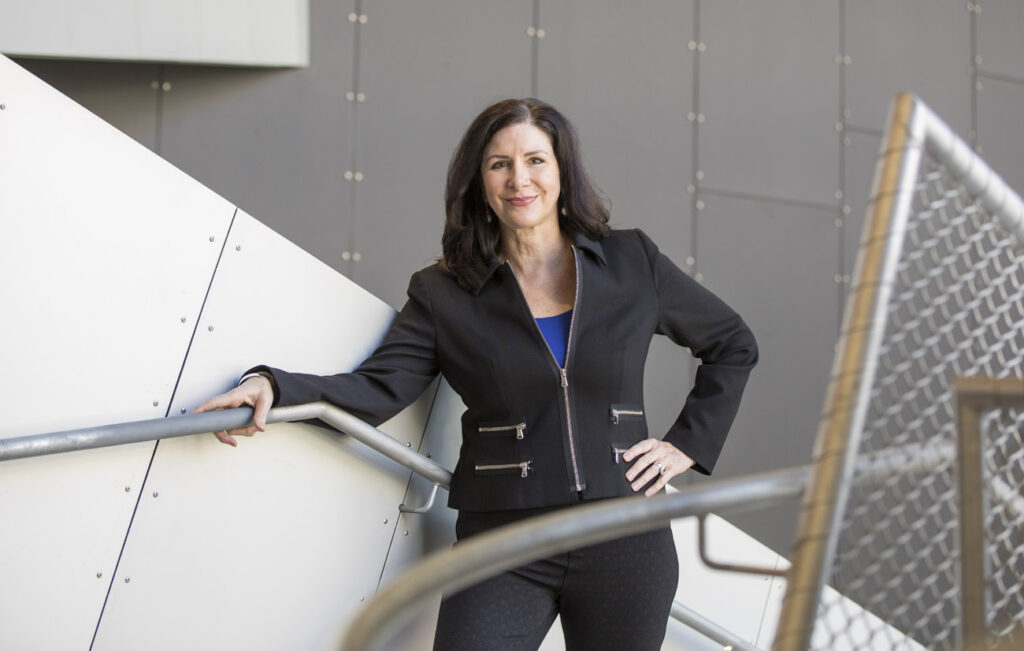
Monash’s Michelle Russell
Monash University has re-imagined its executive education programs to accommodate a world in which social distancing and learning from home has become the norm rather than the exception.
As part of its new portfolio of courses, Monash has developed face-to-face programs and subjects that blend in-person and online components, suitable for a post-pandemic world.
Acknowledging how important work-life balance is to many executives, the programs endeavour to respect students’ time, so learning can be incorporated into a working week.
With so many people moving into rural and remote areas during and post-COVID, they also accommodate distance learning and provide different formats and learning styles, recognising participants have varying capacities to attend courses, no matter if they are online or face-to-face.
At the same time, the courses try to help students build their network and encompass socialising and peer learning. They also explore leadership and business challenges and equip participants with the insights, skills and confidence to tackle the issues they and their businesses face every day. Classes are intended to examine ways to build a competitive edge and learn skills and insights that can be immediately applied to their work.
Anyone can enrol in Monash’s programs, and there are courses for self-directed participants and also packages the university can roll out for businesses. Strategy, innovation, leadership and influence and business acumen are just some of the topic covered in its courses. It is also delivering a module on productivity and wellbeing as part of the university’s partnership with Arianna Huffington’s Thrive Global, known as Thrive Global Asia Pacific. There is also a course for company directors.
“All participants who complete a course earn a digital badge they can use to let employers and others know they have taken part in the program. Badges can be displayed on LinkedIn profiles and email signatures. Participants can also take multiple courses to achieve a micro-credential, which can be a pathway into programs like a masters of management or other degrees that allow for elective units,” says Michelle Russell, director, executive education, Monash Business School.
A micro-credential earned through Monash Business School’s executive education program may be used as credit towards a master of leadership, master of management, master of business and master of international business. It may also be used as credit for various graduate certificates and graduate diplomas the university also runs.
With more than 20 open enrolment programs available, Monash is also running a complimentary masterclass series as an introduction to its program. Hardwiring your organisation for customer centred innovation is the first masterclass to kick off on 31 March, led by Monash Business School associate Julia Birks.
Birks has a background in industrial, print, digital and service design and has worked across the public and private sectors in fields such as finance, telecommunications, education and health. Her work centres on helping organisations to balance customer needs with the organisation’s needs.
The masterclass recognises that, despite never having had better access to customer data, so many businesses are finding it tricky to navigate an uncertain environment, with only partial insight into what lies ahead. This makes it tough for executives to work out which business problems to prioritise and solve.
Many businesses are also not grounded in a culture that supports transformation and innovation, which also hamstrings their ability put in place growth strategies that are suitable for a commercial environment that’s still working its way through the implications of the COVID-19 pandemic.
This masterclass should help businesses and those leading teams to explore how human-centred strategies help support an innovative culture to increase their likelihood of commercial success. Human-centred design is a problem-solving methodology that considers the human perspective on the issue the technique has been tasked to resolve at each step of the process.
The lunchtime masterclass is a feeder into three other executive education programs Monash is running that are also being led by Julia Birks. In the Digital strategy and transformation course executives learn how to create value for customers with digital technologies and put together a digital strategy and roll out an implementation plan. Future proofing your business helps participants turn ideas into real business opportunities. In this course, executives learn how to develop product prototypes and new services for the benefit of the business and its customers. Fostering an innovation culture helps leaders make progress part of day-to-day operations, rather than viewing it as a bolt on to various departments and functions in a business.
It has never been more important for leaders to embrace new ideas to make sure their operations and strategy remain relevant in a vastly-changed world. Courses such as Monash’s help businesses to right-size their operations for today’s business climate and beyond.
This article first appeared in The Australian Financial Review
